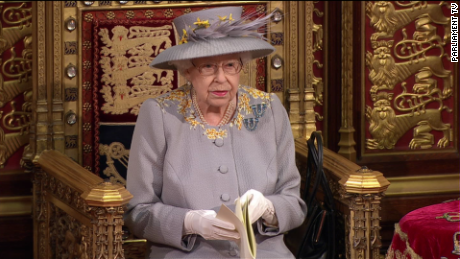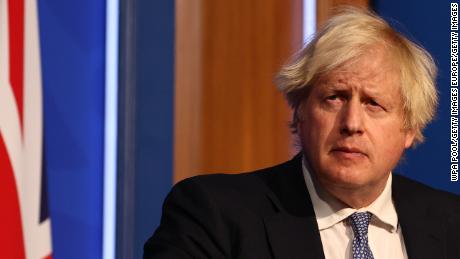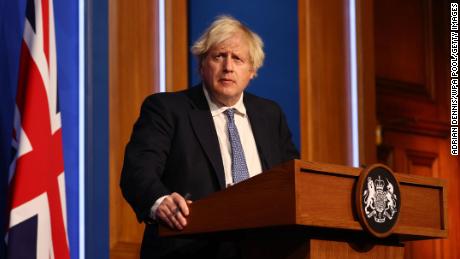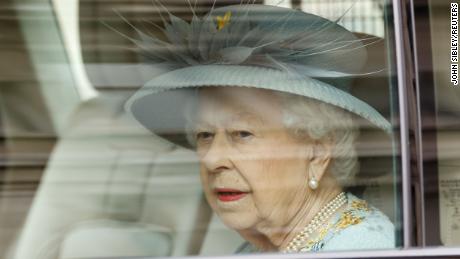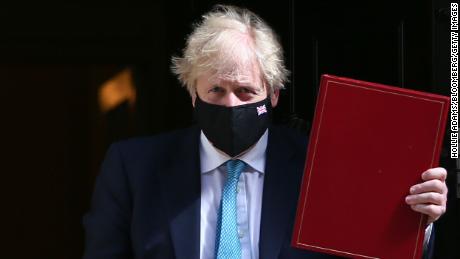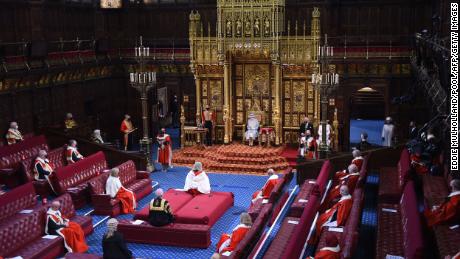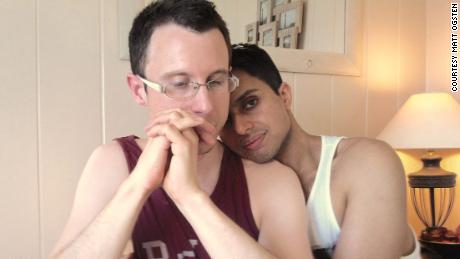London (CNN)Queen Elizabeth II carried out her first major engagement since the funeral of her husband Prince Philip on Tuesday, unveiling the UK government's legislative agenda and confirming plans to ban LGBTQ conversion therapy in a formal ceremony at the Houses of Parliament.
The Queen opened a new session of Parliament and read aloud UK Prime Minister Boris Johnson's priorities, in a ceremonial event that until a few years ago she had routinely attended with Philip, the Duke of Edinburgh.
Announcements in the Queen's Speech -- which is written by the government, usually each spring or after an election -- included the reintroduction of a controversial bill to increase police powers, legally binding environmental targets, and changes to the UK's health and social services sector.
The speech is one of the 95-year-old monarch's most important symbolic duties and forms the centerpiece of the State Opening of Parliament ceremony. Accompanied by her son and heir, Prince Charles, it took around 10 minutes for the Queen to read the speech from the throne in the House of Lords chamber.
It was her first official engagement outside of Windsor Castle since the Duke of Edinburgh died aged 99 last month.
Also referenced in the speech was a contentious plan to require voters to provide proof of their identity when taking part in elections. The government has said the move would reduce voter fraud, but critics from across the political spectrum have said such fraud is virtually non-existent and that the move would make it harder for poorer people to vote.
And the Queen confirmed that Johnson's government is planning to ban so-called conversion therapy, the pseudoscientific practice of attempting to change a person's sexuality or gender identity. The same intention was announced by Johnson's predecessor Theresa May three years ago, and campaigners have grown frustrated that it has not yet been enacted.
Queen appears in stripped-down ceremony
The Queen's Speech is a significant event in both the royal and political calendars. The monarch's appearance gave Britons an early glance of their Queen in her role since she became a widow. The actual contents of her speech, by contrast, set out the government's vision and are fiercely debated by lawmakers for days afterwards.
The affair is usually an especially flamboyant one but was scaled back in light of the pandemic; the horse-drawn carriage the monarch usually rides from Buckingham Palace was scrapped, and she did not wear the royal Robe of State.
Nonetheless, the ceremony was littered with much of its traditional pomp and pageantry. The Queen walked alongside her hefty Imperial State Crown, and Black Rod -- who acts as the monarch's representative in Parliament -- had the door to the Commons chamber slammed in her face as a gesture representing the independence of lawmakers.
Prince Charles once again accompanied the Queen to the event, as he has done since Philip's retirement in 2017.
Politically, the focus of the speech was Johnson's pledge to "deliver a national recovery" from the Covid-19 pandemic, including pledges to boost research, improve education and accelerate the creation of housing.
But much of the debate focused on plans to bring in a photo ID requirement at the ballot box. The Queen said the government would work to "renew democracy and the constitution" and "ensure the integrity of elections" through new legislation.
But Rosena Allin-Khan, the Labour Party's shadow minister for mental health, said the measure was "unjust" and "will only make our country even more unequal." Conservative backbencher David Davis told The Independent earlier that it was an "illiberal solution in pursuit of a non-existent problem."
Johnson's agenda was unveiled after his Conservative party enjoyed a set of convincing results at local elections across the UK last week. The party won a parliamentary by-election -- a rare feat after 11 years in government -- and picked up council seats around England.
His major challenge, however, may be keeping the UK together and batting back growing calls from Scotland for an indepedence referendum. "My ministers will promote the strength and integrity of the union," the Queen told Parliament, also promising moves to "address the legacy of the past" in Northern Ireland.
A couple of hours after the speech is delivered, lawmakers begin to debate its contents in what is known as the "Humble Address," which usually lasts several days. Following the discussion, a vote is held -- but that process will be essentially symbolic given Johnson's healthy parliamentary majority.

